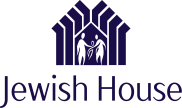
Medical Professionals and Staff Resources
You were given a special gift; the ability to help others in need. Help make your patients’ hospital stay more comfortable by taking a few minutes to browse through fundamentals of the Jewish religion, and the culture that surrounds it
Jewish Laws and Customs
Help your patients and their families have a more pleasant stay by acquainting yourself with their customs, and the laws that apply when in a hospital setting.
Kosher Food Laws and Policies:
What is kosher?
Kosher food is food prepared in adherence to the dietary laws of Judaism. The laws that govern kosher food deal with what foods may be eaten and how those foods must be prepared.
How can hospitals provide kosher food?
Kosher Guidelines:
Kosher foods are generally divided into three main categories: Meat, Dairy and Pareve.
Meat
For an animal to be kosher, it must have cloven hooves and chew its cud. Therefore, pork or any derivate of pork is not Kosher. Manufacturers must process the meat in a specific way to maintain the integrity of kosher production methods. Examples of kosher meat varieties include beef, veal, goat and lamb. Birds and poultry (that are not birds of prey) are also kosher, including chicken, turkey and certain types of duck, quail, and geese.
Additionally, for meat and poultry to be kosher it must undergo the process of shechitah, the prescribed method of slaughtering animals. This is performed by a highly skilled specialist.
Dairy
All dairy products and derivatives (milk, cheese, butter etc.) must come from a kosher animal. Importantly, dairy products may not be consumed with meat or poultry.
Pareve
Pareve foods contain neither milk nor meat, that is, they are neutral. This category includes fruit and vegetables that must be insect – free, grains, juice, eggs from a kosher animal and fish that have both fins and scales. Importantly, fish may not be consumed together with meat.
Meat and Milk in the Kosher Kitchen
The Torah forbids: 1) cooking meat and milk together in any form; 2) eating such cooked products (i.e: Serving ice cream with a meat meal or serving milk coffee with a meat meal), or 3) deriving benefit from them.
As a safeguard, the Rabbis extended this prohibition to disallow the eating of meat and dairy products at the same meal or preparing them on the same utensils. Furthermore, milk products (milk coffee, cheese, ice cream) cannot be consumed after eating a meat meal, for a period of 3-6 hours. Prior to eating meat after dairy, one must eat a solid food, either drink a liquid or thoroughly rinse one’s mouth, and check the cleanliness of one’s hands.
Cooking or Warming up Kosher Food in the Hospital Kitchen
Each kosher meal sourced from Kosher suppliers by the Hopsital catering department, comes with clearly labelled instructions on how to warm or heat up the meal.
In the event, you have a home cooked meal or other self sourced food to be heated or warmed up, the following guidelines should be followed to ensure the meal remains kosher.
Using a non kosher microwave: Double wrap in glad wrap the food requiring warming up. Ensure the wrap is tight and around all sides of the food packaging. (A suggestion is to place the food into a container or bowl so the glad wrap does not stick to your food)
Using a non kosher oven: Double wrap the food item in foil tightly and warm up in the oven. Ensure the foil is double layered and covers the food item on all side.
Shabbat Policies
Desecrating the Shabbat or Yom Tov
There are many things which are forbidden irrespective of the fact that they are powered by electricity or not, simply because they perform functions that are forbidden on Shabbat. Such as:
Using the lift on Shabbat
SBD giving me – awaiting copy
Signing documents on Shabbat
SBD giving me – awaiting copy
Turning on and off lights on Shabbat
SBD giving me – awaiting copy
End of Life and Death
Desecrating the Shabbat or Yom Tov
Jewish law prescribes specific procedures on how to treat the deceased, from the moment of passing until the burial. Respecting the body of one who has passed is of primary importance.
The patient and family will most likely wish to have their beliefs upheld during this difficult time. Browse through some of the customs and procedures, and know what to expect.
Jewish Burial
Procedure following a passing, click here
In case of a death, please follow the procedure below:
- Call the doctor of the deceased to organise a Medical Certificate Cause of Death.
- If the deceased passed away in a nursing home and a doctor is not available to issue the Medical Certificate Cause of Death, a Registered Nurse can issue a Verification of Death Form. This will allow the Chevra Kadisha to transfer the deceased to their premises, however, a doctor’s Medical Certificate Cause of Death will still be required to be arranged before the burial can take place.
- In the case of a death requiring the Coroner (i.e. sudden death, death after/during an operation or if a doctor is unavailable) you may wish to print out and sign the Objection to Post-Mortem form and Email or FAX to the NSW Coroner or give the form to the Police – (see Coronial Process Diagram)
- When the Medical Certificate Cause of Death (or Verification of Death) is ready, please call and notify the Sydney Chevra Kadisha immediately on 9363-2248 – 24 hours a day 7 days of the week.
- If it is a Shabbat or Yom Tov (Jewish Festival), please follow the answering machine prompts. You will be redirected to another Funeral Home working on our behalf, who will organise the transportation of the deceased to the Chevra Kadisha premises. At the Chevra Kadisha premises there is Shmira (guarding) organised every day. The Chevra Kadisha will contact you at the end of Shabbat or High Holiday to make the funeral arrangements.
- The Chevra Kadisha will need to meet with you in order to organise the funeral and also obtain the required information to register the death with the Registrar of Births, Deaths and Marriages. To ensure the meeting is productive, please complete the Funeral Plan Form to the best of your ability (or print and complete the PDF version of the form) and have it ready for the meeting.
- For a male deceased, ensure you transport their tallit (prayer shawl) and Kittel with them to the Chevra Kadisha, as the deceased will be wrapped in them. If they do not have, the Chevra Kadisha will provide.
Contact the Sydney Chevra Kadisha – Jewish Burial Society :
Jewish Medical Law Guidelines
Organ Donation
Judaism holds life as being sacred. For this reason, donating an organ to save a life is one of the highest acts of virtue one can do
An amazing article written by Rabbi Aron Moss, Rabbi of Nefesh Shule in Sydney, can be read here.
Organ Donation Policy by the Sydney Beth Din
Blood Transfusion
While you are alive, to donate an organ that will replenish themselves, like bone marrow or blood, in order to save or vastly improve another life is one of the greatest acts you could do.
Policy Guidelines
There is nothing in Jewish law preventing any Blood transfusion, donation or even collection of blood.
End of Life
Even during the most difficult situations, our Torah is here to guide us and strengthen us.
Policy Guidelines
Jewish law considers life of almost infinite value. One moment of life is considered as valuable as 70 years of life. Therefore, any decisions in relation to treatment or withdrawal of treatment, even at end of life, have great moral significance. As such, euthanasia both active and passive are strictly forbidden in Jewish law.
As these questions can be very delicate and halachic rules nuanced, please seek Rabbinic advice in these situations.
Body Parts
Does Judaism bury missing body parts? What if some body parts where removed by coroner?
Policy Guidelines
Every attempt should be made to recover all body parts including blood for the purposes of bringing to a Jewish burial.
In relation to amputations, please seek Rabbinic advice.
IVF
Under Jewish law, medical intervention including IVF is permitted, and encouraged when needed. The primary concern is correct identification of sperm, eggs and embryos.
Policy Guidelines
As a general rule, IVF and other fertility treatments using the husband’s sperm with a wife/mother egg and uterus are allowed in Jewish law.
However, the issues are complicated and an expert Rabbi in the field should be contacted, such as Rabbi Ulman.
Click here for more about IVF according to Jewish Law by fertility experts Genea and the Sydney Beth Din
Desecrating the Shabbat and Yom Tov
There are many things which are forbidden irrespective of the fact that they are powered by electricity or not, simply because they perform functions that are forbidden on Shabbat.
Policy Guidelines
When life is in danger even when that risk is remote, all prohibitions are suspended and everything maybe done to heal the patient and preserve life. This includes even if the patient is, terminal. Anything and everything maybe done in Shabbat or Yom Tov (Festivals) to lengthen life.
Click here for more information
Fasting on Yom Kippur and other fast days
Fasting Policy by the Sydney Beth Din
Policy Guidelines
This includes no fasting including on Yom Kippur if life is in danger.
As a general rule a women within 3 days of giving birth, may not fast even on Yom Kippur. Speak to an expert Rabbi for further advice.
A person when life is not in danger and is in Hospital (ie visitors, spouse, family member or patient), should try to avoid breaking Shabbat. Preferably, turning on and off lights and other activities should be performed by a Gentile Nurse/Doctor. Any document or items that need to be signed should be done after Shabbat or Festivals or signed with a left hand.


